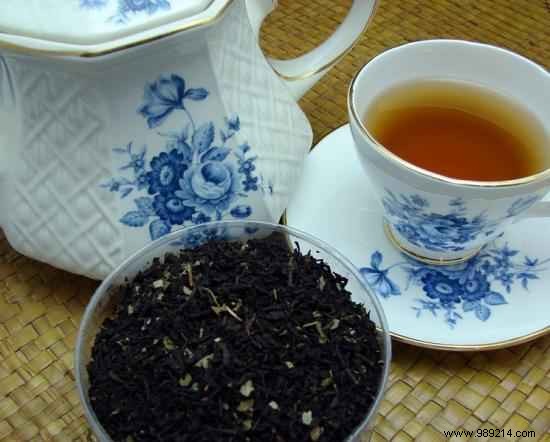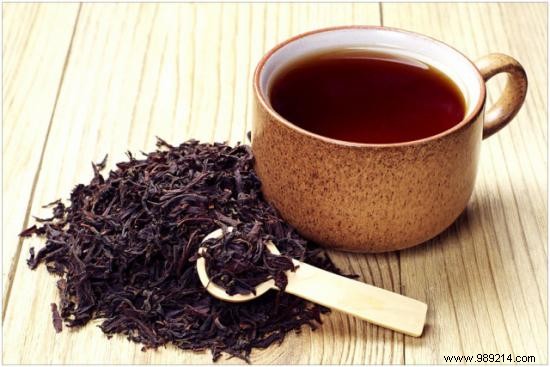
You think black tea is bad for your health?
Then you will be surprised!
Obviously, if you consume 3 liters a day, the enamel of your teeth may take a hit.
But consume in moderation, black tea is much better than you think!
Its properties are very numerous .
Personally, I love having a delicious cup of tea in the morning to start the day.

Scientific studies have shown that black tea has little-known benefits.
Both green tea and black tea come from a shrub called Camellia Sinesis.
But the manufacturing processes are different.
Indeed, in addition to being withered, rolled and heated, black tea leaves are fermented before the final drying process.
To take advantage of the benefits of black tea , know that it is recommended to not add anything in it.
No additives such as milk or sugar to take advantage of all its virtues!
Here are the 10 health benefits of black tea if you regularly drink 1 or 2 cups:
An undeniable benefit of black tea is its impact on dental health.
Studies conducted by the Tea Trade Health Research association suggest that black tea reduces the formation of dental plaque .
According to these studies, it also limits the growth of bacteria that promote the formation of cavities and dental caries.
It is the polyphenols contained in black tea that eliminate the bacteria responsible for cavities.
They also prevent the development of enzymes that allow dental plaque to cling to our teeth.

The effects of black tea on cardiovascular health are positive.
Dr. Arab L. and colleagues authored a scientific article titled “Green and Black Tea Consumption and Risk of Stroke:A Meta-Analysis”.
They find that, regardless of country of origin, people who consume 3 cups of tea or more per day see the risk of suffering a heart attack decrease.
This risk drops by 21% compared to people who drink one cup or less of black tea a day.
Another virtue of black tea, it contains polyphenols.
These are antioxidants that help limit DNA damage caused by the combination of tobacco and other toxic chemicals.
These antioxidants are different from those contained in fruits and vegetables.
Thus, if consumed regularly, they bring different benefits and a healthier lifestyle.

It has been proven in recent years that the antioxidants in tea play a role in the prevention of certain types of cancer .
These include polyphenol and catechins, although to be definitive, more studies will have to confirm this.
It seems that women who drink tea have a lower risk of developing ovarian cancer, compared to other women.

It also seems that those who regularly drink tea have stronger bones and less risk of developing arthritis.
The role of phytochemicals found in tea is highlighted.

A study was conducted among elderly people living in the Mediterranean islands.
It found that people who consumed black tea for a long time at a moderate level, i.e. 1 or 2 cups a day, had a 70% lower chance of developing type 2 diabetes.
We have all experienced the soothing and relaxing benefits of black tea .
Not only does black tea help slow the pace after a long day, but that's not all.
Studies show that the amino acid L-theanine found in black tea also helps you relax and focus better.
Black tea has also been shown to reduce levels of the stress hormone cortisol when regularly consumed in moderate amounts.

Black tea contains alkylamine class antigens that help boost our immune system.
In addition, it also contains tannins that have the ability to fight against viruses.
It therefore protects us against influenza, stomach flu and other viruses that we are commonly exposed to on a daily basis.
In addition to improving our immune system, tannins also cure gastric and intestinal diseases.
And if you've had a heavy meal, a cup of black tea can also help you to facilitate the digestive activity of your intestine.

Unlike other beverages that have a high caffeine content, tea has a low amount of caffeine.
It is an interesting property to improve blood circulation to the brain without exciting the heart .
It also stimulates the metabolism and the respiratory system, as well as the heart and kidneys.